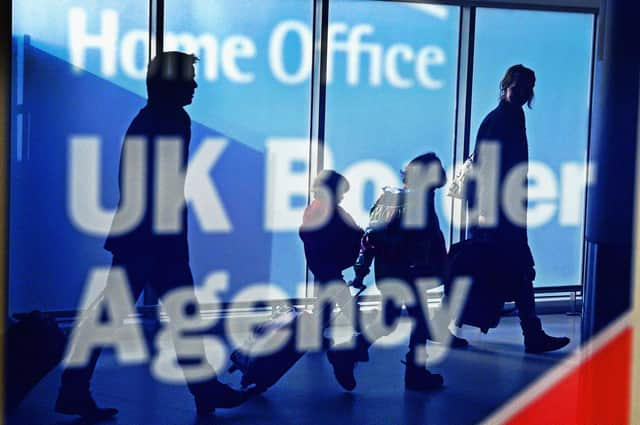Right-wing myths about migration must not be allowed to damage the economy – Scotsman comment


A “unique set of circumstances”, including refugees fleeing the Ukraine War and the recovery from Covid, meant that the “unusually high” figures would not persist, she stressed, adding that the number of people leaving the UK was expected to rise in the years ahead.
However, less than 24 hours later, the sudden news that Rishi Sunak was considering a plan to limit the numbers of foreign students was causing consternation among universities. Professor Brian Bell, who chairs the government's own Migration Advisory Committee, told BBC Radio 4's Today programme: “Most universities for most courses lose money on teaching British students and offset that loss by charging more for international students. If you close down the international route, I'm not sure how the university continues to survive.”
Advertisement
Hide AdAdvertisement
Hide AdOne of the myths of Brexit was that immigration was a ‘bad thing’. However, this idea really only began to gain traction after the 2008 financial crash and the years of austerity that followed.
The damage to the economy caused by Brexit, the Covid pandemic and now the cost-of-living crisis may provide further incentives for some politicians to use migrants as a distraction or scapegoat.
Others, if brave enough, could point to evidence that new citizens tend to boost the economy. For example, according to the Office for Budget Responsibility, net immigration of 245,000 people a year until 2067-68 would mean that the government’s net debt would be 30 per cent lower than if it was 165,000 a year, largely because most incoming migrants are of working age.
Even the most liberal of the Conservative government’s critics recognise the need to stop desperate people risking their lives in small boats on the English Channel, although there are fierce arguments about the best ways to do this.
However, politicians who slavishly subscribe to anti-migration dogma risk making our current economic troubles even worse. Challenging entrenched myths can be difficult, but playing up to this one is a foolish and dangerous game.
Comments
Want to join the conversation? Please or to comment on this article.